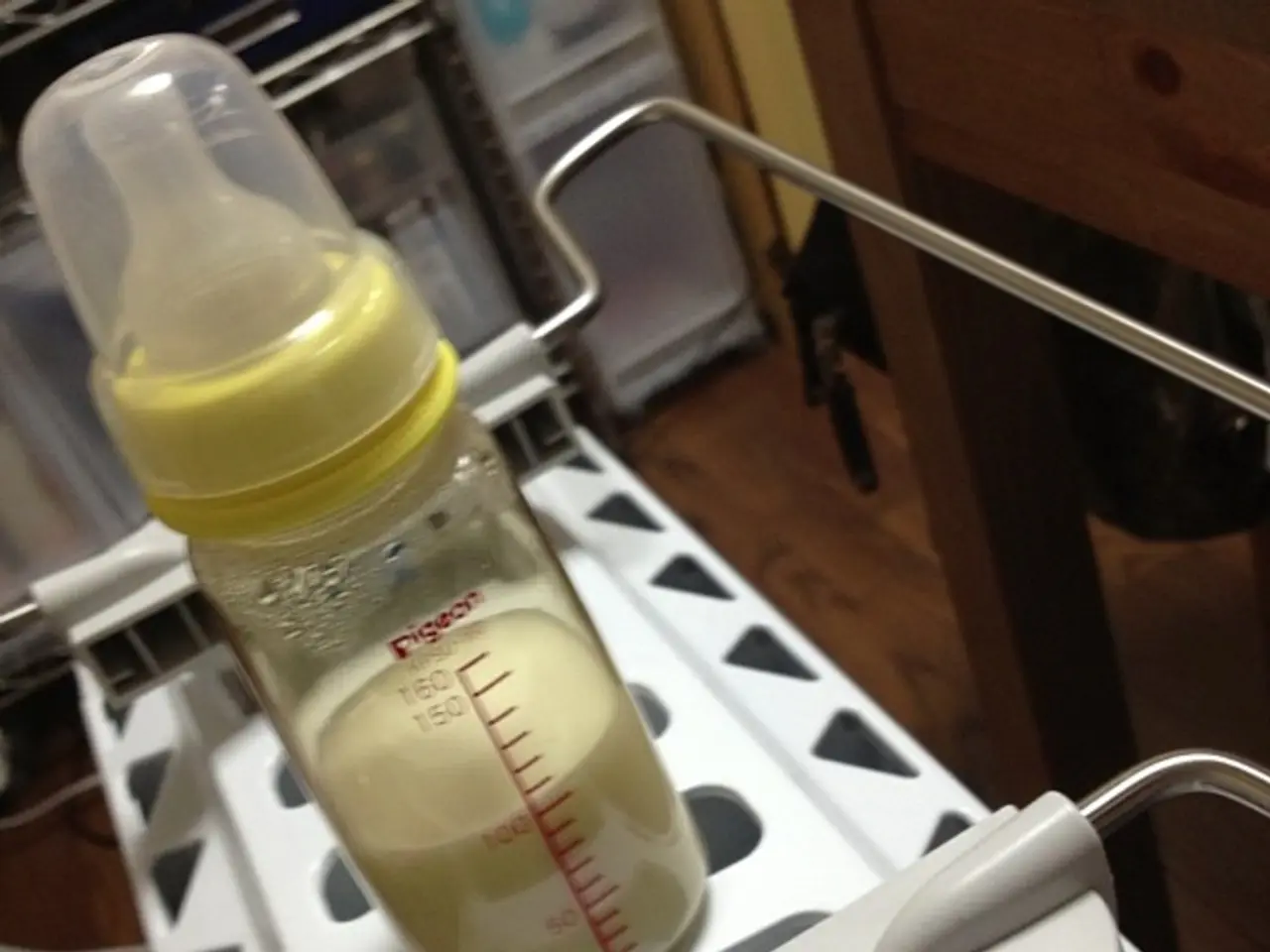Experiencing Postpartum Blues and Depression: Identifying Signs, Root Causes, and Resources for Help
Navigating parenthood can be a captivating yet turbulent voyage, fraught with feelings that range from elation to despair. The postpartum period, in particular, can bring about a whirlwind of emotions, from the common baby blues to the severe postpartum depression.
Baby blues, also known as 'postpartum blues,' are quite prevalent, affecting about 80% of new mothers within the first few weeks post-delivery. These feelings are characterized by mood swings, irritability, sadness, and anxiety. Although they can be distressing, baby blues usually subside within a couple of weeks without any specific treatment.
However, postpartum depression (PPD) is a more serious condition, affecting around 10-20% of new mothers. PPD shares some similarities with baby blues, but the intensity and duration of the symptoms are significantly more severe. In addition to mood swings, irritability, and anxiety, PPD may also contribute to feelings of hopelessness, persistent sadness, and even thoughts of self-harm or suicide.
Postpartum depression can also affect partners and fathers, although less frequently. Recognizing the signs and symptoms of postpartum blues and depression is crucial for early intervention and support.
Decoding Postpartum Blues
Postpartum blues, also known as baby blues, are a form of mild depressive symptoms that new parents might experience after giving birth. These symptoms typically develop within two to three days of childbirth, peak over the next few days, and resolve within two weeks.
Unpacking Postpartum Depression
PPD is a more severe and prolonged form of depression that can significantly impact the well-being of new parents. Apart from persistent sadness, irritability, and anxiety, PPD may lead to feelings of hopelessness, difficulty bonding with the baby, changes in appetite, sleep disturbances, and thoughts of self-harm or suicide.
Factors Triggering Postpartum Blues and Depression
The exact causes of postpartum blues and depression are still a mystery. However, several factors can contribute to their development, such as hormonal fluctuations, emotional stress, lack of support, physical health issues, and a history of mental health problems.
Seeking Help and Support
If you or someone you know is grappling with the symptoms of postpartum blues or depression, it's essential to seek help and support. Reach out to your healthcare provider, join support groups, and ensure that your partner and loved ones are aware of your feelings and struggles to gain their emotional support and practical assistance when needed.
Prevention and Self-Care
While postpartum blues and depression cannot always be prevented, certain self-care practices can help reduce the risk and promote overall well-being. Prioritize physical health, build a support network, and practice self-care activities to manage stress and promote a positive mindset.
Remember, you are not alone! There are resources available to help you navigate this challenging period and support your journey towards emotional well-being.
- Navigating the field of health-and-wellness, particularly mental-health, during the postpartum period is crucial for recognizing the early signs of postpartum blues and depression, ensuring prompt intervention and support.
- The history of parenting has shown that both nutrition and stress management play a significant role in brain development, which can be affected during the postpartum period. Embracing self-care practices, such as maintaining a balanced diet and managing stress, may help in addressing postpartum blues and depression.
- Scientific studies on postpartum blues and depression have suggested that factors such as hormonal imbalances, stress, lack of support, and a history of mental health issues can contribute to their development. Recognizing these factors can aid in implementing preventive measures and seeking help when needed.







